Saving redundant gas boilers from the scrap heap: Aira meets The Salvage Sister
Today, residential heating is Europe’s third-largest emitter of CO₂ and is responsible for 16% of the UK’s CO₂ emissions…
Read more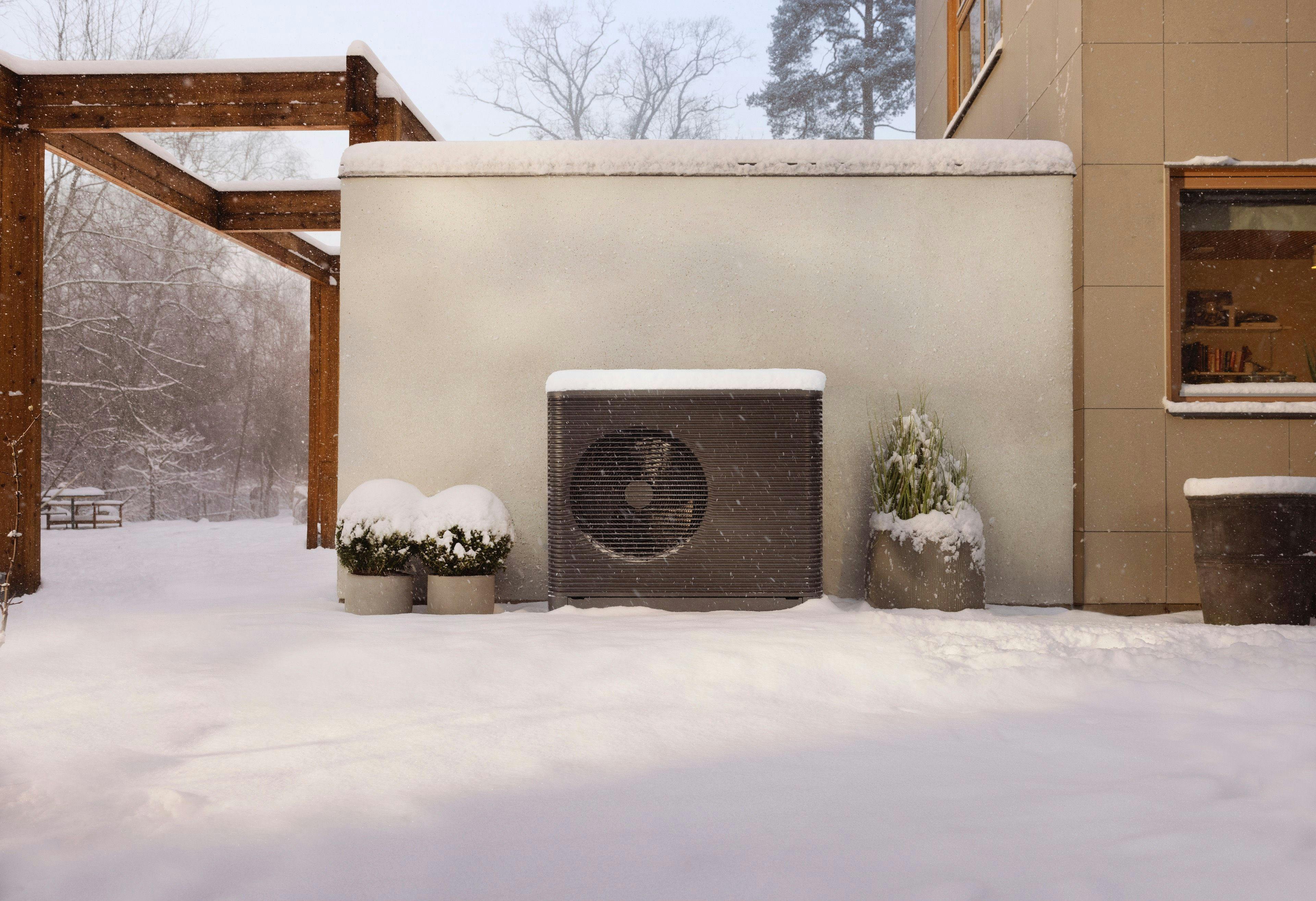
Content Writer : Carl Robinson
Source Article : https://www.airahome.com/en-gb/blog/what-is-an-air-source-heat-pump
Air source heat pumps provide a more energy-efficient and cheaper way of heating and cooling your home. Millions of these energy-efficient heat pumps have already been installed throughout Europe and are set to be heating the majority of homes within the next decade.
But how exactly does an air source heat pump work? How can they be both eco-friendly and cost-effective? And are they the right heating choice for your home?
An air source heat pump harnesses free and clean thermal energy in the air to heat your home. As it only requires a small amount of electricity to achieve this, they are four times more efficient than fossil-fuel-dependent gas boilers.
It’s why an air source heat pump won’t just slash your CO₂ emissions by 75%, it’ll shrink your heating costs too. In fact, people who switch to an air source heat pump cut their household heating costs by 25%. See how much you could save.
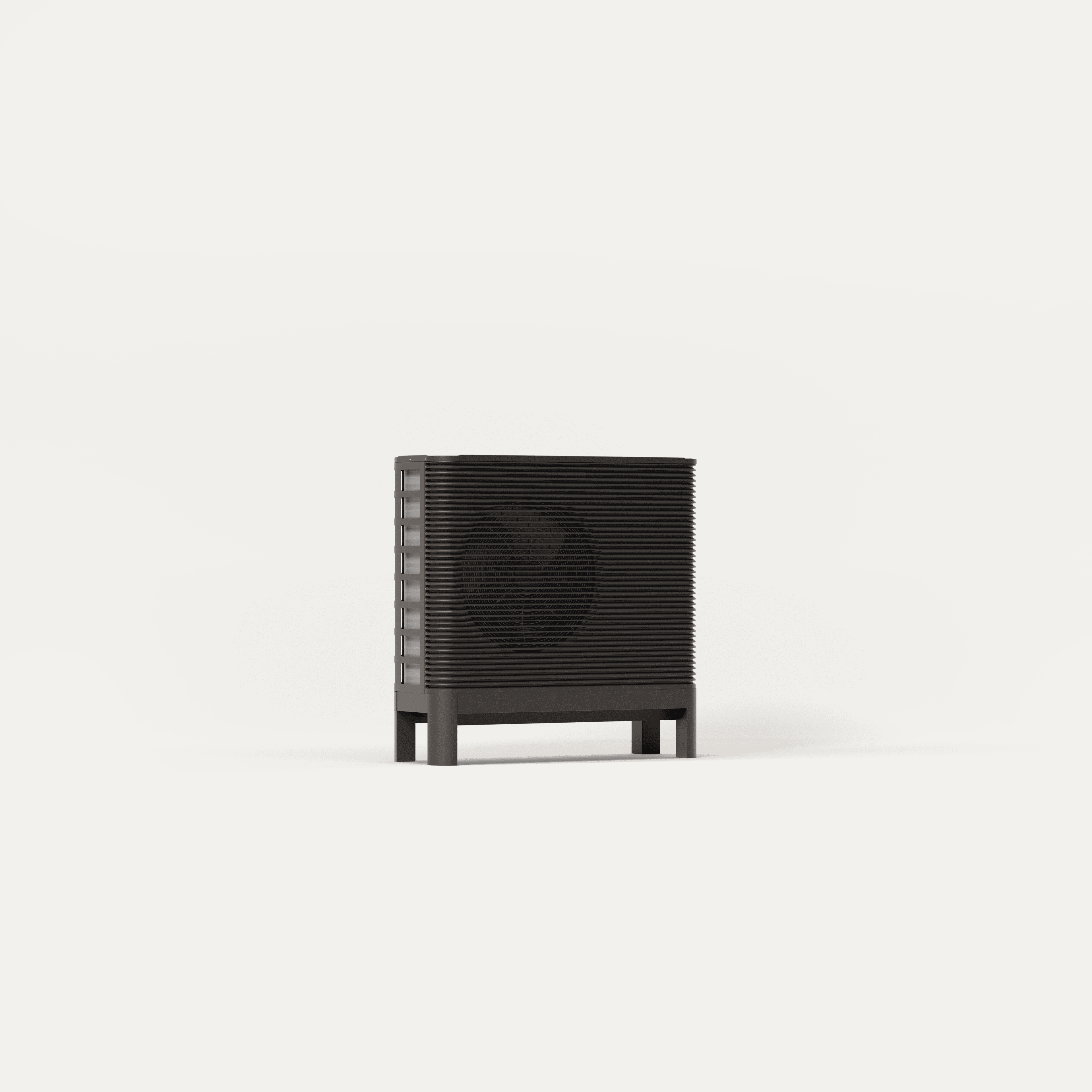
While an air source heat pump uses the latest technology, the process of transferring heat from the air to your home is quite simple. An air source heat pump works a little bit like a refrigerator in reverse, but harnesses the energy from the air to provide you with energy-efficient heating in the winter and cooling in the summer, depending on the type of heat pump you have.
The heat pump, which sits outside your home, draws in the surrounding air using a fan and extracts heat from it. This heat is absorbed by the refrigerant inside the heat pump, which turns from liquid to gas and enters the unit’s compressor.
The compressor pressurises the vapourised refrigerant, causing its temperature to rise. The high-temperature, high-pressure refrigerant then enters a condenser, where it turns into a liquid again.
The hot refrigerant liquid passes across a heat exchanger where it releases heat to the surrounding air or water in your home.
The high-pressure liquid refrigerant moves through an expansion valve, where its pressure is reduced. The cooler refrigerant turns back into a low-pressure, low-temperature vapour, ready to start the process again.
There are three common types of air source heat pumps designed to meet the heating and/or cooling requirements of different households:
An air to water heat pump, like the Aira Heat Pump, absorbs heat from the outdoor air and transfers it to heat water. This heated water can then be circulated through your home’s existing underfloor heating system or radiators. This is the only type of air source heat pump included in the government’s Boiler Upgrade Scheme.
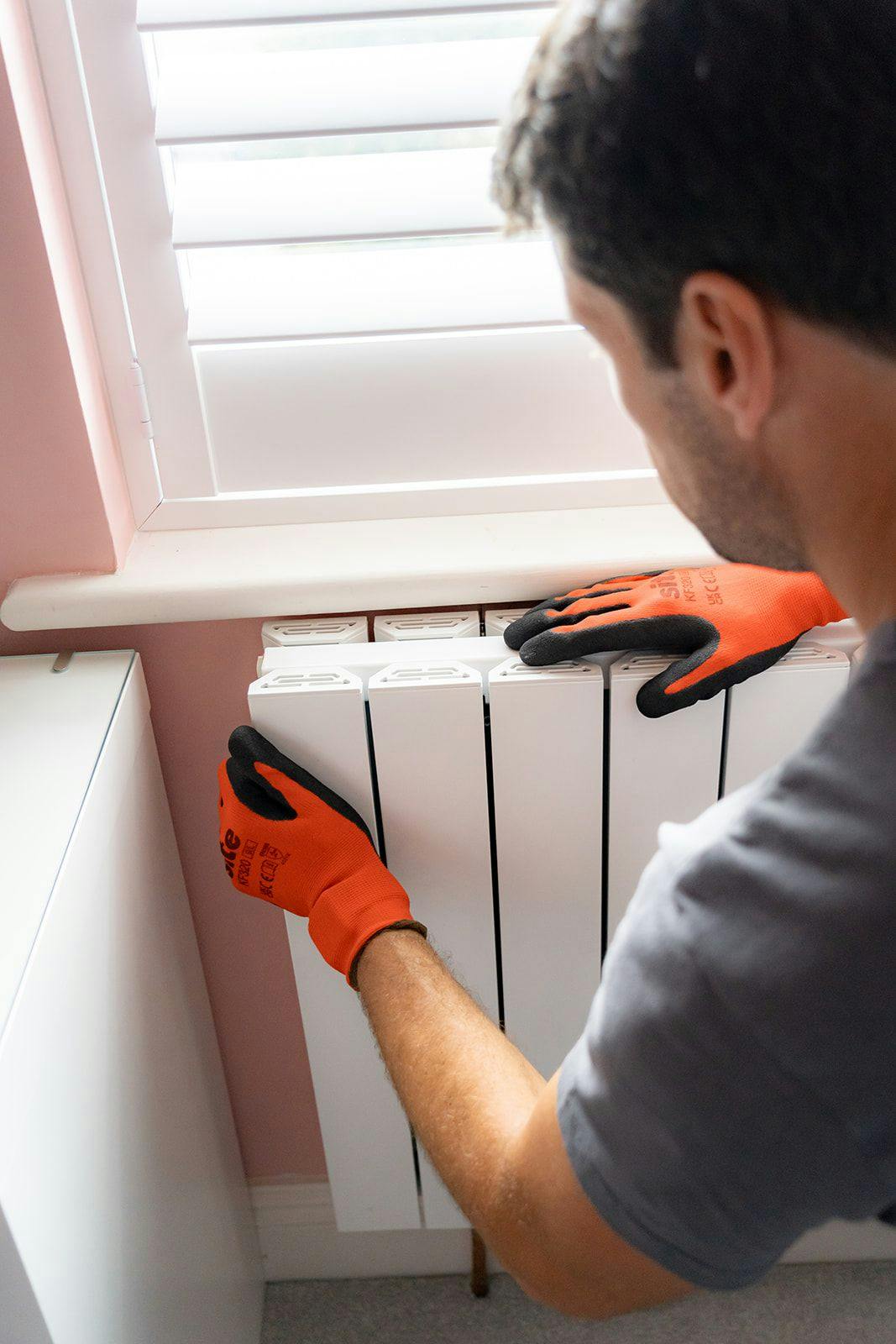
Instead of heating water, an air to air heat pump powers fan coils to release warm air into your home. During summer this process can be reversed for cooling, with the heat pump absorbing indoor heat and releasing it outside.
A hybrid air source heat pump works in combination with another heating system, like a gas boiler. These are typically designed for people who have an unusually high household heat demand.
An air source heat pump reduces your energy bills and your impact on the planet. If you switch your gas boiler to an air source heat pump with Aira you can:
Every Aira Heat Pump installation also includes our 15 Year Comfort Guarantee, which means any parts and labour required to ensure the function of your product and installation are on us for 15 years.
There can be some potential challenges to installing a heat pump.
Discover more about the pros and cons of an air source heat pump.
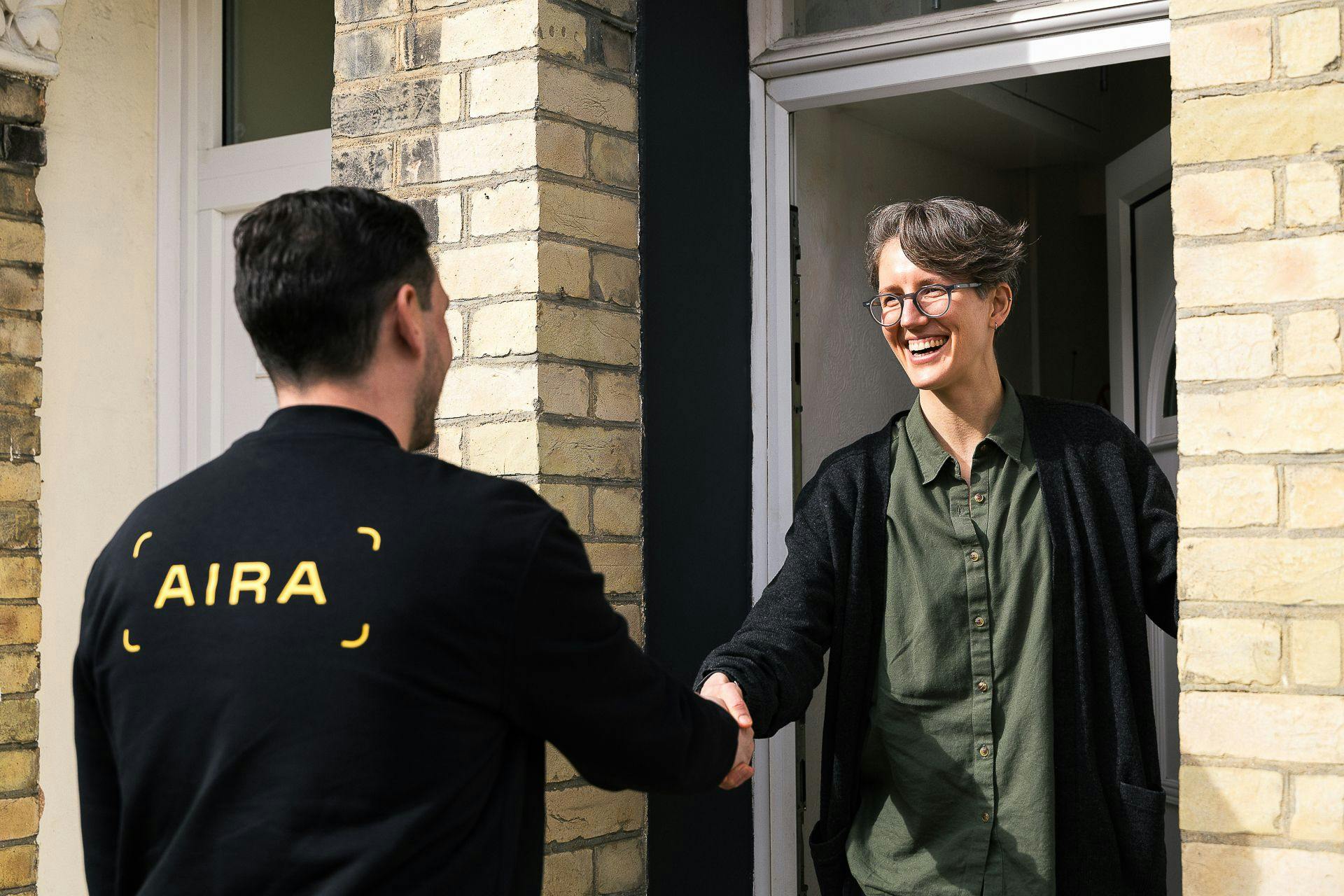
The cost of installing an air source heat pump is dependent on a variety of factors, so there’s no one-size-fits-all price. The total cost of an air source heat pump can vary based on the size of your home, the total area that needs to be heated, your heating requirements and your home’s heating infrastructure. Use our heat pump cost and savings page to get an idea of how much an air to water heat pump may cost.
Installing an air source heat pump will cost around £12,500. After applying the government’s £7,500 grant for your air pump as part of the Boiler Upgrade Scheme, you’ll pay around £5,500 over the appliance’s 20-year lifetime.
When you compare that to a £3,000 gas boiler and its expensive running costs and heating cover, the cost to maintain a boiler for 20 years skyrockets to more than £12,000. Over the course of its lifetime, an air source heat pump from Aira is a better investment for your home.
The UK government is offering a Boiler Upgrade Scheme (or ‘BUS’ for short); a £7,500 grant for homeowners who replace their gas boilers with a clean energy heat pump. When you get an air source heat pump with Aira, we’ll handle the application on your behalf and deduct it from your quote.
What’s more, any clean energy improvements you make to your home, like switching to a heat pump, are currently VAT-free until 31st March 2027. That cuts a hefty 20% off the cost of having an eco-friendlier household. Beat that, boilers!
If you live in Scotland, you could be eligible for the Home Energy Scotland Grant and Loan, which provides households with a £7,500 grant and an additional £7,500 interst-free loan. This means you can get an Aira Heat Pump from as little as £42 per month.*
Air source heat pumps have a lower running cost than traditional heating solutions. In an average three-bedroom semi-detached house, you can save around £400 per year compared to a standard gas boiler.
Read our guide to air source heat pump costs to discover a full breakdown on the costs associated with getting and using an air source heat pump.

If your current heating system is getting old or if you’re sick of the constant maintenance and high energy prices associated with it, it could be the perfect time to switch to a clean-energy air source heat pump.
You don’t need a lot of outdoor space to have the outdoor unit of a heat pump installed. For the indoor unit, you will need to ensure you have an interior space roughly the size of a conventional gas boiler (0.7m height x 0.3m depth x 0.4m width) and, depending on the model you are provided, an additional space for a buffer tank. If you are more limited on space, we also offer an all-in-one indoor unit, which is approximately the size of a fridge freezer (1.91m height x 0.6m width X 0.65m depth).
Requiring a large garden to install a heat pump is just one of the many preconceptions that can put people off switching. Learn more about some other myths about heat pumps that simply aren’t true.
An air source heat pump’s Coefficient of Performance (COP) is perhaps the best unit of measurement to demonstrate how efficient a heat pump is. COP refers to the ratio of energy used compared to heat produced. The higher the ratio, the more efficient the appliance is.
In mild weather, the COP for an average heat pump is around 4.0, meaning for every one unit of energy used, four units of energy are provided. When the temperature drops, the heat pump has to work harder, so the COP falls to around 2.5 to 2.8. Even at these levels, a heat pump is still far more efficient than a gas boiler, which typically has a COP of around 0.9.
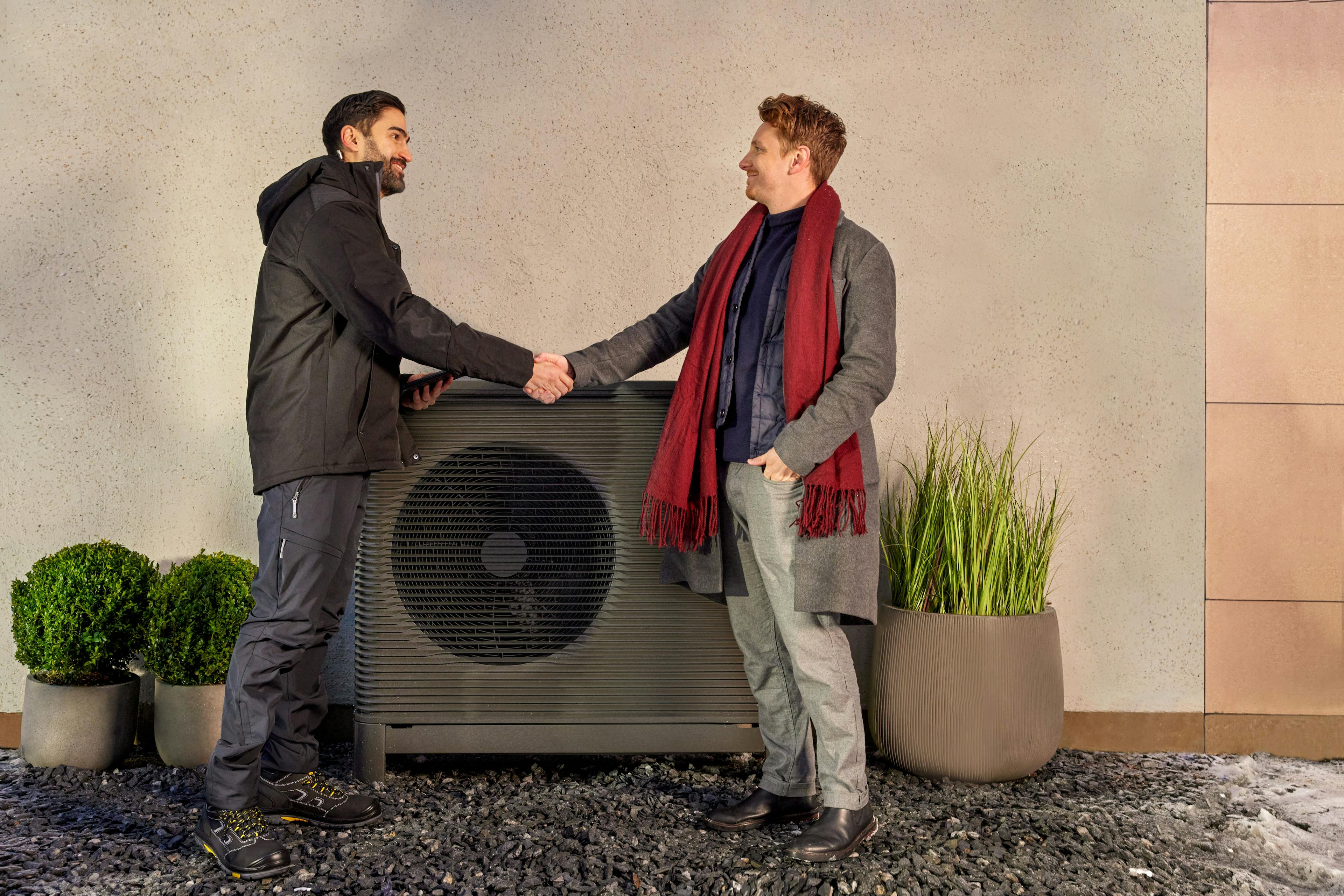
The way we heat and power our homes hasn’t changed for decades. But these methods are not only costly, but bad for the environment too. With an air source heat pump, there’s no more relying on fossil fuels and no more eye-watering heating costs. Just hassle-free clean energy-tech that’s affordable and sustainable.
With around 20 million heat pumps already installed across Europe, the drive for clean energy is relentless and at the forefront of this energy revolution is Aira. We are a modern energy-tech company dedicated to providing clean and cheaper energy for every home.
And, with the Aira all-inclusive plan, we make switching to an air source heat pump affordable and hassle-free by taking care of the entire process, from providing a home energy assessment and seamless installation to comprehensive 15-year aftercare. Everything’s included, and it’s all under one roof.
Get a no-obligation heat pump quote and join the green energy revolution today.
* Home Energy Scotland monthly payment of £42 is based on a 10-year plan for a 6KW Aira heat pump, standard installation complexity and replacement of 4 radiators at £150 each. Your quote may vary as Aira quotes are tailored based on various factors.